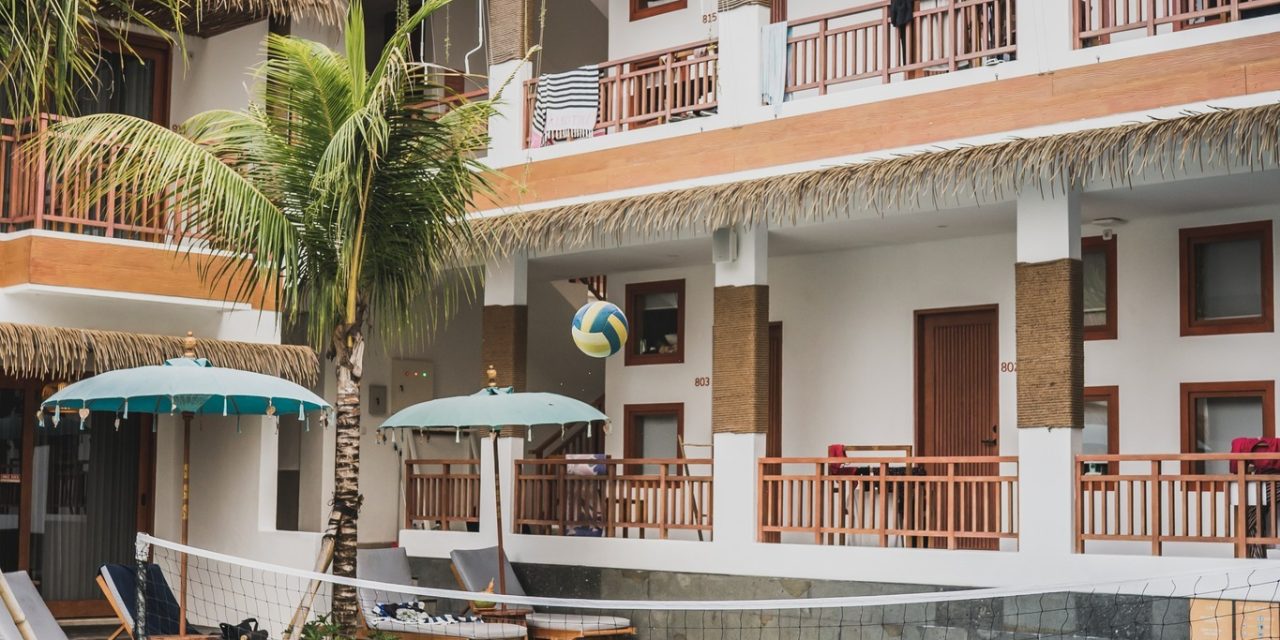When I first set foot in Ubud, Bali, it felt like stepping into a lush, vibrant postcard. Picturesque rice terraces, artful temples, and warm-hearted locals welcomed me with open arms. Despite the enchanting scenery, I knew that traveling sustainably was essential to preserving this paradise for future generations. If you’re planning a trip to Ubud, here are some sustainable travel tips that will help you enjoy its beauty while minimizing your impact on the environment and local community.
1. Choose Eco-Friendly Accommodations
One of the easiest ways to make your trip more sustainable is to select eco-friendly accommodations. When I visited Ubud, I stayed at a charming eco-lodge nestled in the rice fields. It was built using local materials and employed staff from the community. Not only did this support the local economy, but I also enjoyed incredible views and magnificent sunrises right from my balcony.
Look for hotels and homestays that have sustainable practices, such as solar power, organic gardens, and water conservation initiatives. Websites like EcoBnB and BookDifferent can help you find places that put sustainability first.
2. Embrace Local Transportation
During my time in Ubud, I discovered that walking or biking around was not only environmentally friendly but also the best way to soak in the local culture. I often walked from my accommodation to the bustling Ubud Market, admiring the intricate wood carvings and the vibrant colors of fresh fruits and vegetables.
If you need to venture farther, consider renting a bicycle or using local transportation like “ojek” (motorcycle taxi) or share a “bemo” (minibus). These options reduce your carbon footprint and allow you to experience the daily rhythm of Ubud in a more intimate way.
3. Support Local Artisans and Businesses
Ubud is brimming with talented artisans, from textile weavers to woodcarvers. Instead of buying mass-produced souvenirs from tourist shops, I sought out local markets and workshops to purchase handmade crafts directly from the artisans. This not only supported their livelihoods but also ensured that my souvenirs were unique and meaningful.
When purchasing items, ask about their origin and the materials used. You’ll often find that many artists use sustainable practices, such as repurposing materials or using natural dyes. Engaging with the locals can lead to unforgettable experiences, like learning to make traditional batik or attending a cooking class.
4. Indulge in Plant-Based Cuisine
While in Ubud, I fell in love with the vibrant plant-based cuisine. Many restaurants focus on farm-to-table practices, sourcing ingredients from local organic farms. I relished every bowl of smoothie, every refreshing coconut, and especially the mouthwatering tempeh curry.
Try dining at places like the Seeds of Life or the popular Café Organic, where sustainability meets culinary creativity. Eating local not only supports the community but also reduces your carbon footprint associated with transporting food items.
5. Participate in Conservation Activities
I was fortunate enough to participate in a community clean-up organized by locals. It was a wonderful way to give back and connect with residents who are passionate about keeping Ubud beautiful. Not only did we collect plastic waste from the shores, but I also learned about programs aimed at conserving Ubud’s natural resources.
If you’re interested in conservation, look for opportunities like tree-planting events or local wildlife protection initiatives. Engaging with these activities can provide a deeper connection to the culture and environment of Ubud.
6. Be Mindful of Water Usage
Ubud can get quite humid, and while it’s tempting to take long, relaxing showers after a day of exploring, I quickly learned the importance of water conservation in this tropical paradise. Water is a precious resource in Bali, and many areas face water scarcity.
I made a habit of taking shorter showers and always ensured that I turned off the tap while brushing my teeth. I even found some charming cafes that offered complimentary water refills in glass bottles. Carrying a reusable water bottle not only saves money but also cuts down on plastic waste.
7. Respect Local Customs and Nature
Perhaps one of the most significant lessons from my Ubud trip was respecting local customs and nature. Ubud is steeped in rich traditions and spiritual practices. During my visits to temples, I made sure to dress appropriately and follow local etiquette. It’s essential to understand the significance of rituals and respect the sacred spaces that bring the community together.
When exploring the breathtaking rice terraces, I tread lightly and stayed on designated paths to avoid damaging the fragile ecosystem. Remember to always ask for permission before snapping photos of locals or their property – a little kindness goes a long way.
8. Offset Your Carbon Footprint
Lastly, consider ways to offset your carbon footprint from traveling. While Ubud is a short flight from many places, air travel can contribute significantly to greenhouse gas emissions. I was glad to find several organizations and apps that allow travelers to calculate their carbon footprint and provide options to offset it through eco-friendly projects.
Look into contributing to projects focused on reforestation, renewable energy, or supporting local communities in Bali. Knowing that my travels contributed positively to the earth made my experiences even more fulfilling.
Conclusion
Ubud is a treasure trove of culture, beauty, and spirituality, and it’s vital to travel with sustainability in mind. By choosing eco-friendly accommodations, supporting locals, and respecting the environment, you can enjoy this enchanting paradise while ensuring it remains stunning for generations to come.So pack your bags, grab your reusable water bottle, and get ready for an unforgettable adventure in Ubud, where every choice you make can leave a positive impact!





